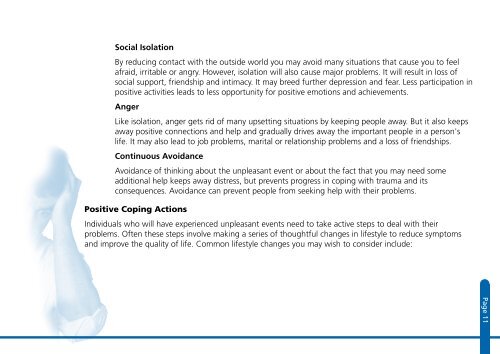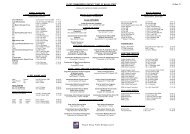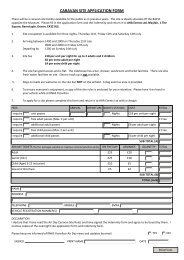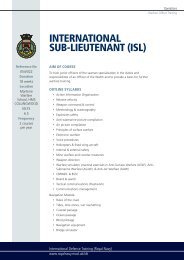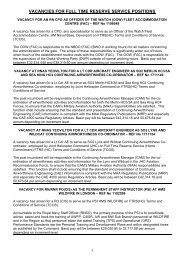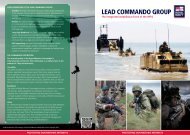The Trauma Risk Management Handbook
The Trauma Risk Management Handbook
The Trauma Risk Management Handbook
Create successful ePaper yourself
Turn your PDF publications into a flip-book with our unique Google optimized e-Paper software.
Social Isolation<br />
By reducing contact with the outside world you may avoid many situations that cause you to feel<br />
afraid, irritable or angry. However, isolation will also cause major problems. It will result in loss of<br />
social support, friendship and intimacy. It may breed further depression and fear. Less participation in<br />
positive activities leads to less opportunity for positive emotions and achievements.<br />
Anger<br />
Like isolation, anger gets rid of many upsetting situations by keeping people away. But it also keeps<br />
away positive connections and help and gradually drives away the important people in a person's<br />
life. It may also lead to job problems, marital or relationship problems and a loss of friendships.<br />
Continuous Avoidance<br />
Avoidance of thinking about the unpleasant event or about the fact that you may need some<br />
additional help keeps away distress, but prevents progress in coping with trauma and its<br />
consequences. Avoidance can prevent people from seeking help with their problems.<br />
Positive Coping Actions<br />
Individuals who will have experienced unpleasant events need to take active steps to deal with their<br />
problems. Often these steps involve making a series of thoughtful changes in lifestyle to reduce symptoms<br />
and improve the quality of life. Common lifestyle changes you may wish to consider include:<br />
Page 11 Page 11


